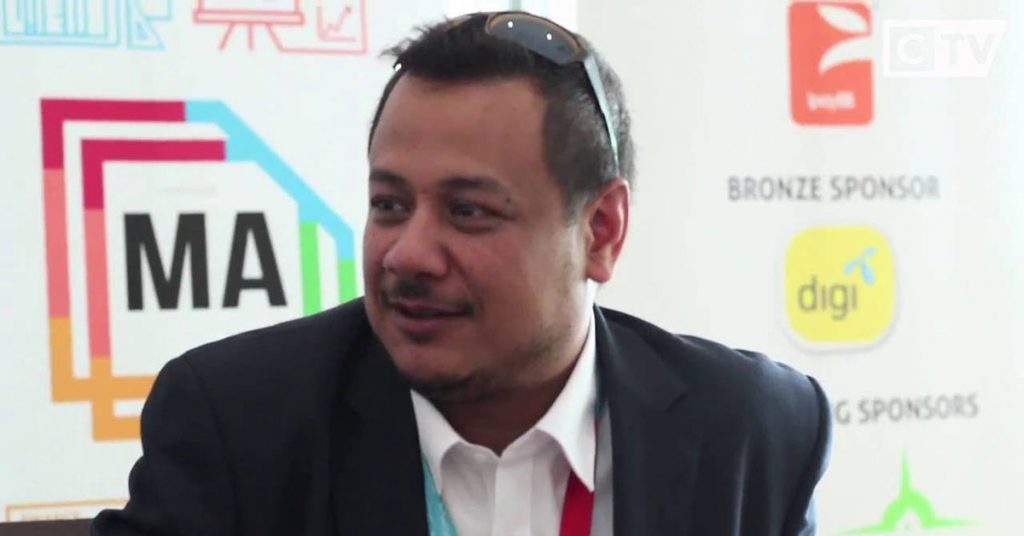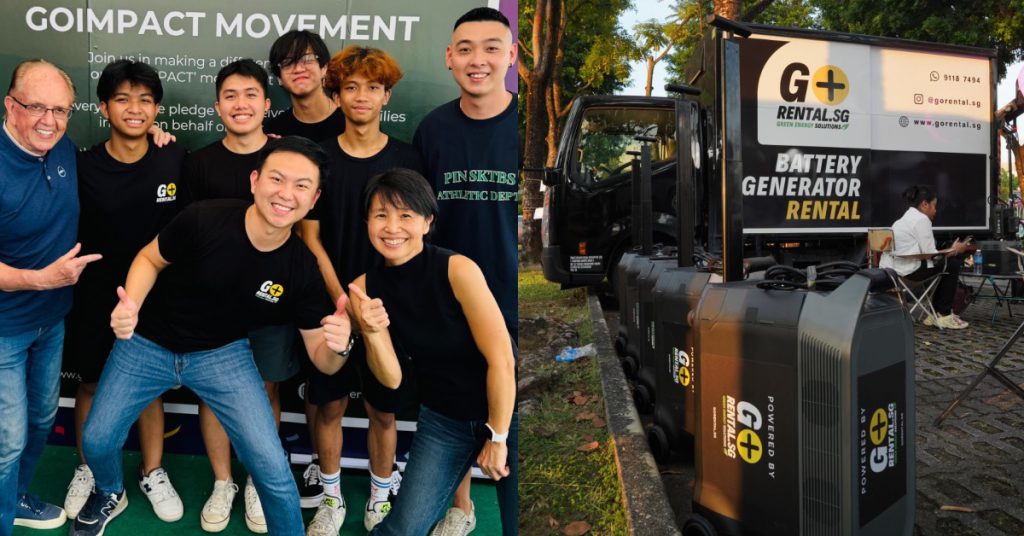Last week, the Malaysian Global Innovation & Creativity Centre (MaGIC) announced the resignation of CEO Ashran Dato’ Ghazi effective in December this year. Ashran who was appointed MaGIC CEO in 2016 succeeding previous CEO Cheryl Yeoh, was announced to be leaving to join consumer intelligence firm Dattel as CEO.
According to a statement, Ashran said he had already intended to resign earlier than the given date, but had waited until MaGIC was repositioned under the Ministry of Entrepreneur Development before officially announcing his decision.
As Ashran prepares to take his leave at the end of the year, we decided to look back at some important developments MaGIC has experienced under his guidance.
1. Bringing MaGIC to East Malaysia
One significant development during Ashran’s tenure as MaGIC CEO was their expansion outside of the Klang Valley all the way to Sarawak in East Malaysia.
In May 2017, MaGIC Sarawak launched a co-working facility in Kuching and called it Borneo 744—its main objective being to build up entrepreneurship within the immediate community and serve the Kuching startup scene.

“We hope to work closely with the state agencies, community builders and NGOs, entrepreneurs as well as making sure all the efforts are sustainable,” said Ashran during the launch of Borneo 744.
“We welcome opportunities to work, collaborate together to create more innovative and creative entrepreneurs.”
Currently, the 12,000 square foot Borneo 744 actively runs workshops and entrepreneurship programmes such as its Grill or Chill monthly pitch sessions and the E-Commerce Shoutout 2018 taking place in December this year.
2. Taking MaGIC’s accelerator global
Another one of Ashran’s more defining contributions as MaGIC CEO was helping escalate their programmes—in particular their MaGIC Accelerator Programme (MAP)—to a global level.
Last year, MaGIC announced that their MAP programme would be restructured and rebranded to become GAP (or the Global Accelerator Programme) in order to promote Malaysia as a hotbed for tech (especially fintech) entrepreneurship.
In contrast with the old programme, the GAP programme saw the inclusion of more foreign startups from countries such as Denmark and Australia, and more importantly did not place a quota to dictate a minimum number of local startups to be present within the programme.
“We put aside ratios and the team looked at the strength of the ideas during the evaluation process,” Ashran commented. “For example, are their ideas pushing the boundaries of what is happening in the space they want to disrupt, and are we helping them move up to the next level?”
“It’s a tall order and we can’t just take someone in because of a quota.”
The first cohort of the GAP programme eventually received 947 applications from 47 different countries, with 54 different startups eventually being selected into the programme.
3. Promoting female entrepreneurship
In May this year, MaGIC announced a pre-accelerator bootcamp exclusive to female entrepreneurs. Aptly titled the Pre-Accelerator Bootcamp: Female Founders Edition, the programme specifically aimed to help participants validate their ideas and develop a working prototype before formulating a strategy for market entry.

This initiative was started in order to combat the problem of under-representation of females in Malaysia’s startup ecosystem.
“To address this gender gap, we need to ensure that we understand the specific challenges which exist for womenpreneurs and that in trying to overcome these challenges, we are doing our best to open up market access and provide more targeted support for women,” Ashran said in a press release.
Response for the bootcamp was encouraging, with a total of 175 applications coming through and a successful demo day concluding the first cohort and rewarding the winner of the demo day pitches with an incorporation package, post-programme mentoring, and unlimited access to the MaGIC co-working space for three months.
4. Organising the GEC Summit
In Ashran’s first year as CEO, MaGIC worked alongside the Ministry of Finance to kick off the Global Entrepreneurship Community Summit.
Wanting to take Malaysian entrepreneurship to the next level, the summit invited internationally renowned speakers to educate and provide insights on global trends and the latest developments in fields like fintech, IT, and Industry 4.0 as a whole.

For example, last year’s edition of the summit (themed “Designing The Future”) saw personalities such as Michio Kaku, Fleur Pellerin, and Sophie Hackford in attendance to educate and inspire over 13,000 attendees from Malaysia and around the world.
The event also held over 100 GEC Lab Sessions that were designed to bring together corporates, entrepreneurs, and key industry players to share ideas and key insights into today’s most relevant industries.
5. Offering more validation to social enterprises and impact makers
Last but definitely not least is MaGIC’s Impact Driven Enterprise Accreditation (IDEA) initiative. Launched in July 2017, IDEA was created to recognise and promote enterprises and businesses that created positive impact within their respective communities.

The initiative also ended up spawning the six-week IDEA Accelerator that specifically aimed to provide support for these enterprises in the form of mentorship, resources, and finances. Through the programme, social enterprises such as The Picha Project and Poladrone would receive usually hard-to-get funding from investors and social procurement contracts from MaGIC’s partners.
“Malaysia, similar to the world around us, faces many societal and environmental challenges – from poverty to educational gaps, pollution and unemployment,” Ashran said during the demo day.
“Impact driven enterprises and social enterprises offer us potential solutions to these challenges, creating jobs for entrepreneurs at every level of society and becoming a catalyst for inclusive growth and development.”
-//-
As of yet there hasn’t been concrete news as to who Ashran’s permanent replacement will be, but it’ll be interesting to see what other developments come out from the agency moving forward.
From our standpoint, we’d love to see more effort poured into leveling the playing field for social entrepreneurs and businesses that often get sidelined in favour of more rewarding ventures, and additionally, we’d very much love to see our fintech scene reach a level on par with countries such as China.
Feature Image Credit: Cradle












